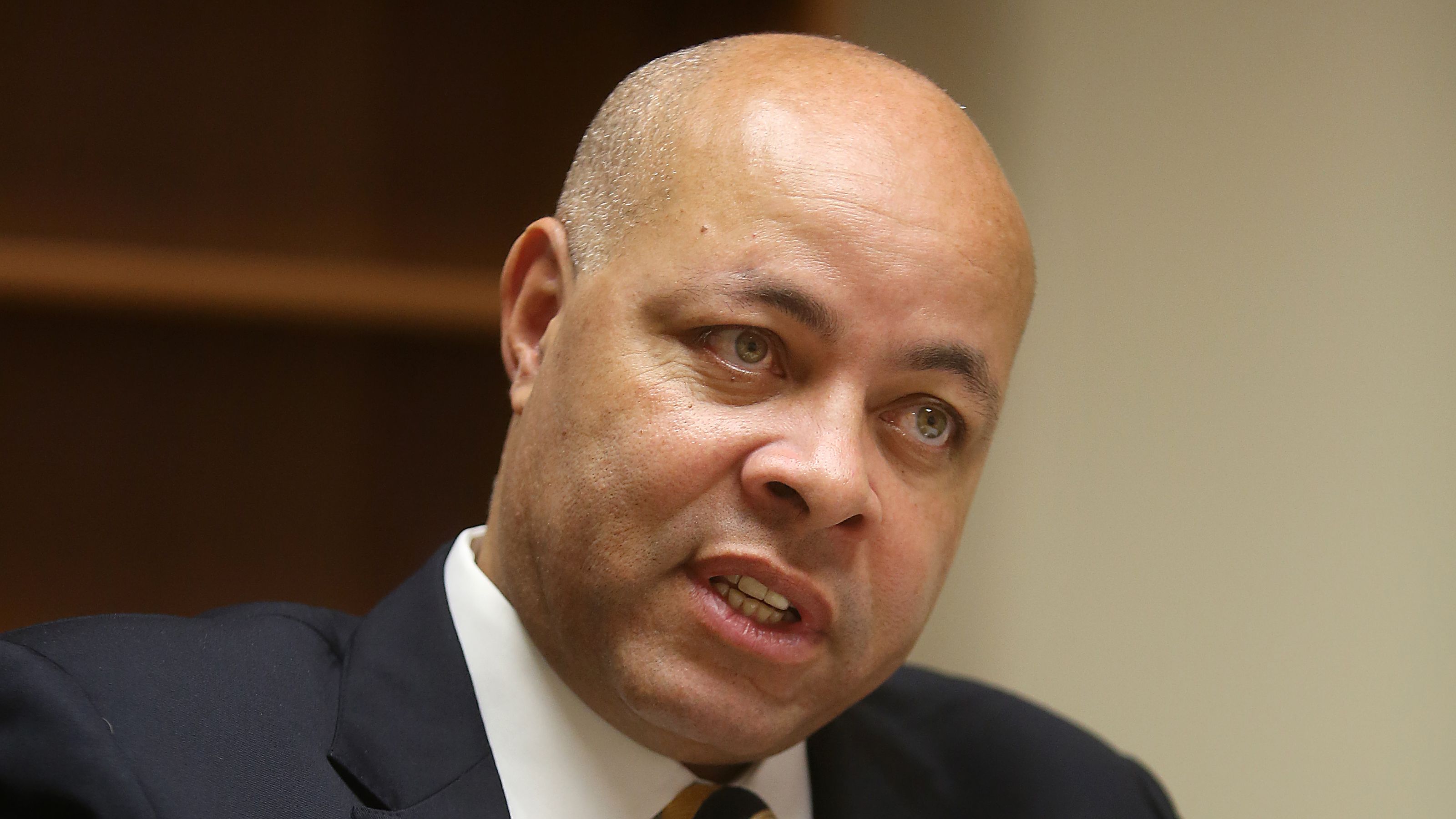Cincinnati Mayor John Cranley (D) announced Harry Black as his pick to fill the role of the city’s equivalent of a chief executive officer.
It has been widely reported that Black is the current finance director for the City of Baltimore, and that he had a tumultuous tenure while serving as the chief financial officer for the City of Richmond, VA. When selected for the Baltimore job, The Brew had the following to say regarding Black:
Baltimore’s new director…was introduced to the City Council as a green-eyeshades number cruncher well-versed in municipal bond transactions.
That dull description hardly fits with Black’s varied career and his sometimes volatile personality that included an attempt to evict the Richmond school board from its offices and frequent brawls with the Richmond City Council.
It has also been widely reported in the Baltimore and Richmond media that Black earned the nickname of being “the mayor’s bull dog” and “Baby Wilder” in reference to former Richmond mayor L. Douglas Wilder.
What makes this interesting is the explanation for all the turmoil in Richmond, by both Black himself and Mayor Cranley. They say it was due to tensions over the transition of the city from a city manager form of government, to a “strong mayor” system.
It should be seen as no coincidence that Black has been selected for the Cincinnati role after he had ramrodded through a new form of government in Richmond that is also being proposed in Cincinnati by a Cranley loyalist – Christopher Smitherman (R). If Black’s history, and Cranley’s style of governance, is any indication, one can assume Cincinnati’s transition from a city manager government to a strong mayor system may be just as tumultuous.
What adds further intrigue to the selection are Black’s other noteworthy leadership moments.
In 2007, then Richmond Mayor Douglas Wilder (D) asked for an outside audit of the city school board’s finances. When rebuffed by the school board, Wilder then forced the move and had Black conduct the operation. In order to do so, Black, as the city’s chief financial officer, withheld half of the board’s non-payroll funds and tried to evict them from their offices.
Such behavior and loyalty would come in handy for Mayor Cranley if he does in fact try to dismantle the Southwest Ohio Regional Transit Authority (SORTA), and shift its control into City Hall – something he has been calling for since his time on city council in the early 2000s.
Later on in his tenure at the City of Richmond, he was nominated to become to the city’s chief administrative officer, but was rejected by the city council, according to The Brew.
Then, in 2008, Black’s office was slammed by a KPMG audit that highlighted a slew of auditing inconsistencies and faults including outdated and unreconciled city financial accounts, improperly recorded account deposits, and more than $5 million in money that was not recorded at all in the city’s cash account as it should have been.
According to the Richmond Times Dispatch, “The memo said millions of dollars from different sources of city money either were not recorded or were accounted for in the wrong period. It also criticized city officials for poor record-keeping of financial transactions, noting that they couldn’t document spending on capital projects or the details of complex economic-development deals.”
At the time, Black attributed the failures of his office to the limited resources he received from the city council, and institutional problems that restricted his ability to hire and fire staff as he pleased.
Black says that he has since learned from his troubled career in Richmond, and that his subsequent experience in the private sector has bolstered his credentials. Unfortunately, there are also disputes regarding his past performance and experience.
In 2012, it was reported that Black’s resume appeared to be a bit overzealous in describing his private sector experience following his time in Richmond.
Harry E. Black claims to have supervised a $500-million construction program at an architectural consulting firm where, according to a federal administrative judge’s finding in 2006, he “was not a key employee” and “had no management authority.”
[…]
Looking at a joint venture by McKissack & McKissack and Global Commerce Solutions Inc. – a company founded by Black’s wife, Sheryl Black – Small Business Administration Judge Thomas B. Pender ruled on May 24, 2006 that “the preponderance of the evidence” showed that Harry Black had “no management authority when he worked for McKissack & McKissack” despite his title.
“Mr. Black is not a key employee of M&M [McKissack & McKissack] and has no ability or power to control M&M. He was originally hired by M&M as an independent consultant and his role as vice president was in name only,” the opinion, obtained by The Brew, said.
But it is what was uncovered by The Brew last October that raises potentially the biggest concern. At that time, Baltimore Mayor Stephanie Rawlings-Blake (D) was moving forward with awarding a $185 million contract to Dynis LLC to replace 400,000 water meters throughout the city and county.
The problem was that Dynis had no experience in doing such work, and that an actually qualified contractor submitted a bid that was $100 million less, but not accepted. Perhaps predictably so, it was uncovered that Dynis had connections to one of the mayor’s top campaign donors, and would make a considerable profit off of the contract.
While the story was uncovered by Mark Reutter, who Mayor Cranley dismissed yesterday as a “silly blogger”, it eventually became front-page news and earned The Brew national acclaim for the work of its “bloggers” who previously had careers as investigative journalists for various newspapers.
While the story centered on Rawlings-Blake and the unethical process of awarding contracts by Baltimore’s Board of Estimates, Black’s position as the director of finance is tasked with working with the Board of Estimates on recommending and issuing contracts.
Outside of the water meter contract scandal, Black’s two-and-a-half-year tenure in Baltimore has been defined by his reduction of the city’s structural deficit and delivery of a 10-year fiscal plan. At the same time, however, he will be leaving the office amid ongoing criticisms about his department’s inability to issue accurate tax bills and maintain proper books for auditing.
Mayor Cranley appears to have used the national search for a new city manager to hand-pick a candidate that will be used to advance his own political agenda.
Black’s past shows a troubled public tenure, questionable private sector career, and paints a picture of a man who greatly desires power and authority, and dislikes those who get in his way.
While his accomplishments in improving minority contracts and reducing structural deficits in Richmond and Baltimore are laudable, his strong-headed and ruthless approach to governance should give Cincinnatians pause.

